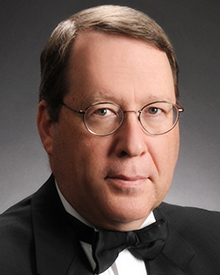I was that kid. You know. The one who asked questions. Questions the teacher really didn’t want to answer. Questions like, “Did God really create the world in six calendar days? Don’t you know science tells us that it took millions of years?” Or, “How did all those animals really fit on the ark? How do we know every species was represented?”
You see, my dad didn’t participate in church and my mom was barely connected. I never was taught at home not to ask questions. I didn’t learn until later that it was important not to make my volunteer, lay, minimally trained, but so very faithful Sunday school teachers uncomfortable. I was just a curious student trying my best to reconcile the information I received from multiple sources.

Charlie Fuller
Yes, I was that kid.
And I still am.
In the 1980s and ’90s, I struggled trying to reconcile the way some people read the words of Paul’s letters with the words of Jesus in the Gospels. I had yet to go to seminary and do a deep dive into biblical history and exegesis. But it seemed to me the truths attributed to Jesus in the Gospels didn’t agree with the narrow and exclusive way some people read Paul’s letters.
I struggled to see that exclusion in Scripture when I read the Gospels of Jesus.
As a college professor, I struggled to see that exclusion in Scripture when I looked into the faces of my female students who felt called to ministry, women who knew their chances of working in a church were slim at best.
I struggled to see that exclusion in Scripture when I looked into the faces of my gay students who simply wanted to be who they were but didn’t live in communities where it was safe to do so. The only safe place for them was to hide.
“I learned the exegetical gymnastics necessary to make these few verses serve an agenda of exclusion and submission, submission to white, male power.”
I went to seminary and concentrated on biblical studies and theology. I learned the many ways to read Paul. I learned how context matters. I learned there are just a few verses that have been used to oppress women, people of color and sexual minorities. I learned the exegetical gymnastics necessary to make these few verses serve an agenda of exclusion and submission, submission to white, male power.
After those years of study, I still realized Jesus’ ethic of love is the thread that holds all Scripture together, an inclusive ethic of love. I learned that all the exegetical gymnastics in the world can’t trump the love of Jesus evidenced in Scripture.
So, what’s the hope for our shared future?
Eventually, we’ve begun to learn that Jesus’ ethic of love calls us to include people of color, even though we still have a long way to go to put that into practice.
Eventually, we’ll learn that Jesus’ ethic of love calls us to fully include women, even though we still have a long way to go to put that into practice.
And eventually, we’ll learn that Jesus’ ethic of love calls us to fully include LGBTQ people, even though we have a very long way to go to put that into practice.
“They say that like it’s some kind of threat.”
Religious fundamentalists and Calvinists lately tell us that support for women as pastors will lead our congregations down a slippery slope toward welcome for people who are gay, lesbian, transgender and queer. They say that like it’s some kind of threat. They say that to scare people away from embracing the inclusion of women as full partners in ministry leadership. They say that to deny the gifts and calling of women as senior pastors. They say that as some kind of scare tactic.
I say, come on down the slide!
It leads toward the freedom of loving all in the name of Jesus. Slide on down and invite your friends. Go ahead and embrace all of humanity — women, men, poor, rich, Black, brown, white, indigenous, immigrant, straight, gay, lesbian, trans, queer — all made in the image of God.
Slip on down the slippery slide of inclusion. You’ll find Jesus waiting for you there.
Charlie Fuller earned a doctor of ministry degree from Baptist Theological Seminary at Richmond and a master of divinity degree from Baylor University’s Truett Seminary — after previously earning three music degrees. He previously served as dean of fine arts at Ouachita Baptist University, minister for congregational life at Second Baptist Church of Little Rock, and executive pastor at First Baptist Church of the City of Washington, D.C. He also is former director of the CenturyMen choir. He and his wife, Cindy, now live in Waco, Texas, where they are members of Lake Shore Baptist Church. He currently serves as interim minister of music at Wilshire Baptist Church in Dallas.


